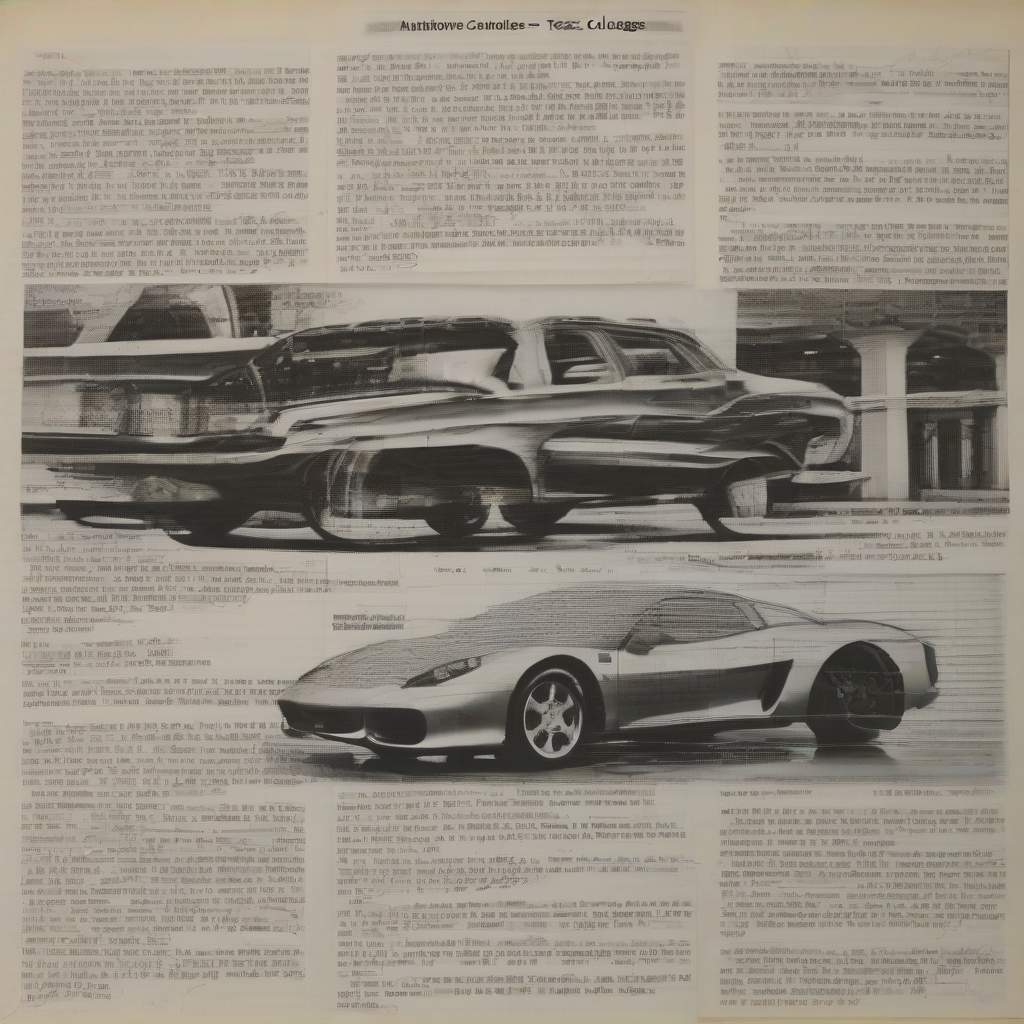Unlocking Texas’s Automotive Engineering Powerhouses: A Comprehensive Guide to Top Colleges
Texas, a state renowned for its robust economy and thriving automotive industry, boasts a number of esteemed colleges offering exceptional automotive engineering programs. This comprehensive guide delves into the leading institutions, highlighting their unique strengths, curriculum offerings, research opportunities, and career prospects for graduates. Whether you’re a prospective student seeking the perfect fit or an industry professional researching talent pipelines, this resource provides a detailed overview of the automotive engineering landscape in Texas.
Top Automotive Engineering Colleges in Texas
While many Texas colleges incorporate automotive engineering principles within broader mechanical or aerospace engineering programs, some stand out for their focused curricula, robust research initiatives, and strong industry connections. The following list explores some of the leading contenders:
-
Texas A&M University (College Station)
- Program Strengths: Texas A&M’s Department of Mechanical Engineering offers a comprehensive curriculum covering various aspects of automotive engineering, including vehicle dynamics, powertrain systems, and control systems. Strong emphasis on hands-on learning through projects and research opportunities.
- Research Focus: Active research in areas such as alternative fuels, autonomous vehicles, and advanced materials for automotive applications.
- Industry Connections: Extensive network of industry partners, providing internships, co-op opportunities, and potential employment avenues for graduates.
- Unique Features: Access to state-of-the-art facilities and laboratories, including vehicle dynamics testing facilities and engine testing labs.
-
University of Texas at Austin (Austin)
- Program Strengths: UT Austin’s Cockrell School of Engineering provides a rigorous automotive engineering education within its mechanical engineering department. Focus on theoretical foundations and advanced applications.
- Research Focus: Leading research in areas such as vehicle electrification, intelligent transportation systems, and sustainable automotive technologies.
- Industry Connections: Close proximity to major automotive companies in Texas and strong connections with the broader Austin tech industry.
- Unique Features: Opportunities for interdisciplinary research collaborations across various engineering and science departments.
-
University of Texas at Arlington (Arlington)
- Program Strengths: UTA’s College of Engineering offers a strong foundation in mechanical engineering with opportunities to specialize in automotive-related areas through elective courses and research projects.
- Research Focus: Focus on areas such as vehicle safety, manufacturing processes, and materials science related to automotive applications.
- Industry Connections: Growing partnerships with automotive manufacturers and suppliers in the Dallas-Fort Worth metroplex.
- Unique Features: Emphasis on practical skills development through hands-on laboratory work and project-based learning.
-
Texas Tech University (Lubbock)
- Program Strengths: Texas Tech’s Department of Mechanical Engineering offers a solid foundation in automotive-relevant areas, including thermodynamics, fluid mechanics, and design. Strong focus on experimental research.
- Research Focus: Research in areas such as engine performance, emissions control, and alternative energy sources for vehicles.
- Industry Connections: Growing partnerships with companies in the West Texas region.
- Unique Features: Access to advanced testing and simulation facilities.
-
Southern Methodist University (Dallas)
- Program Strengths: SMU’s Lyle School of Engineering offers a strong foundation in mechanical engineering, with opportunities for specialization in automotive-related fields. Emphasis on interdisciplinary collaboration.
- Research Focus: Research areas may include aspects of vehicle design, manufacturing, and control systems, often in collaboration with other departments.
- Industry Connections: Strong connections to the Dallas-Fort Worth automotive industry cluster, offering valuable networking and career opportunities.
- Unique Features: A strong emphasis on collaborative learning and experiential learning opportunities.
Factors to Consider When Choosing a College
Selecting the right automotive engineering college involves careful consideration of several factors beyond program rankings and reputation. These include:
- Curriculum and Specialization: Evaluate the specific courses offered, the depth of coverage in areas of interest (e.g., vehicle dynamics, powertrain systems, autonomous driving), and the availability of specialized tracks or concentrations.
- Research Opportunities: Explore the research activities of faculty members, the availability of research assistantships, and the alignment of research interests with your own career aspirations.
- Faculty Expertise: Examine the faculty’s publications, industry experience, and research grants to assess their expertise and potential mentorship opportunities.
- Facilities and Equipment: Assess the availability of state-of-the-art laboratories, testing facilities, and computational resources necessary for hands-on learning and advanced research.
- Industry Connections: Investigate the college’s relationships with automotive companies, internship opportunities, career placement services, and alumni networks.
- Location and Campus Culture: Consider the geographic location, campus environment, and overall student experience to determine the best fit for your personal preferences.
- Cost and Financial Aid: Compare tuition fees, living expenses, and the availability of scholarships, grants, and financial aid packages.
Career Prospects for Automotive Engineering Graduates in Texas
Texas’s robust automotive industry offers excellent career prospects for graduates with degrees in automotive engineering. Potential career paths include:
- Automotive Engineer: Designing, developing, and testing vehicles and their components.
- Powertrain Engineer: Focusing on the design and development of engine systems, transmissions, and other powertrain components.
- Vehicle Dynamics Engineer: Specializing in the handling, stability, and performance of vehicles.
- Controls Engineer: Developing and implementing control systems for various vehicle functions.
- Manufacturing Engineer: Overseeing the production processes and quality control in automotive manufacturing plants.
- Research and Development Engineer: Working on innovative technologies and advancements in the automotive industry.
Graduates can find employment with major automotive manufacturers, Tier 1 and Tier 2 suppliers, research institutions, and technology companies involved in the automotive sector.
Conclusion
